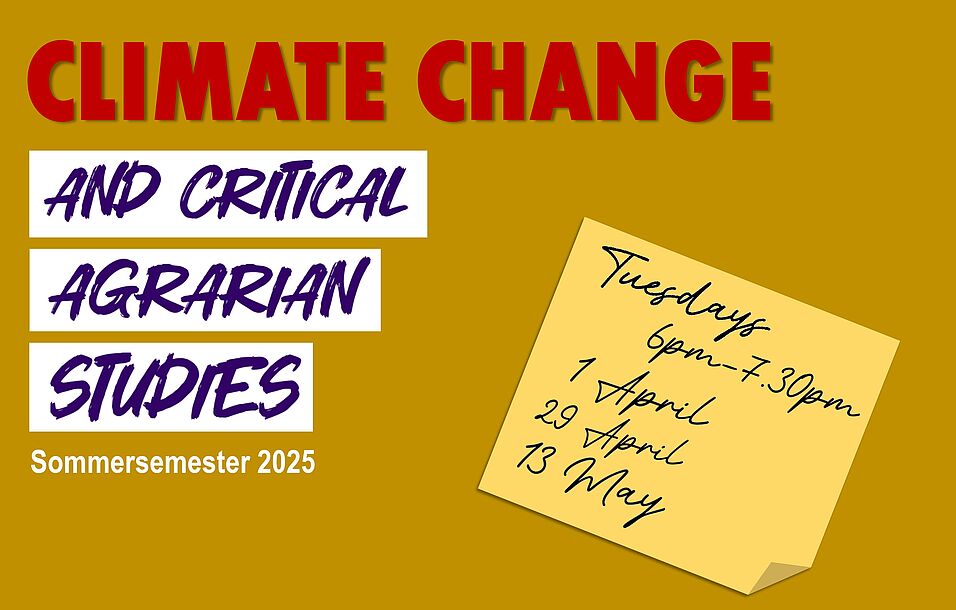In 2021 members of The Journal of Peasant Studies (JPS) Editorial Collective wrote an essay inviting contributions to the then new JPS Forum on “Climate Change and Critical Agrarian Studies.” The guiding questions were, for example, “how the relationship between capitalism and climate change plays out in the rural world” or how “agrarian struggles connect with the challenge of climate change.” The invitation gained momentum and what followed was a large conference in 2022 and eventually the publication of the volume Climate Change and Critical Agrarian Studies (2024). This semester we will be reading selected papers from this volume.
n the second of three meetings we will discuss:
Two more chapters of Scoones, Ian; Borras Jr., Saturnino M.; Baviskar, Amita; Edelman, Marc; Peluso, Nancy Lee; Wolford, Wendy (eds), Climate Change and Critical Agrarian Studies, Oxford 2023.
1) Chapter 5 (pp. 119–142):
Sheila Seshia Gavlin and Diego Silva Garzón, "The political life of mitigation: from carbon accounting to agrarian counter-accounts".
Originally published in: The Journal of Peasant Studies, volume 50, issue 6 (2023), pp. 2259–2282.
2) Chapter 8 (pp. 186–206):
Gave Schwartzman, "Climate rentierism after coal: forests, carbon offsets, and post-coal politics in the Appalachian coalfields“.
Originally published in: The Journal of Peasant Studies, volume 49, issue 5 (2022), pp. 924–944.
The texts are also provided here
For further information: agrarian.studies.wiso@univie.ac.at
Website: https://agrarianstudies.univie.ac.at

